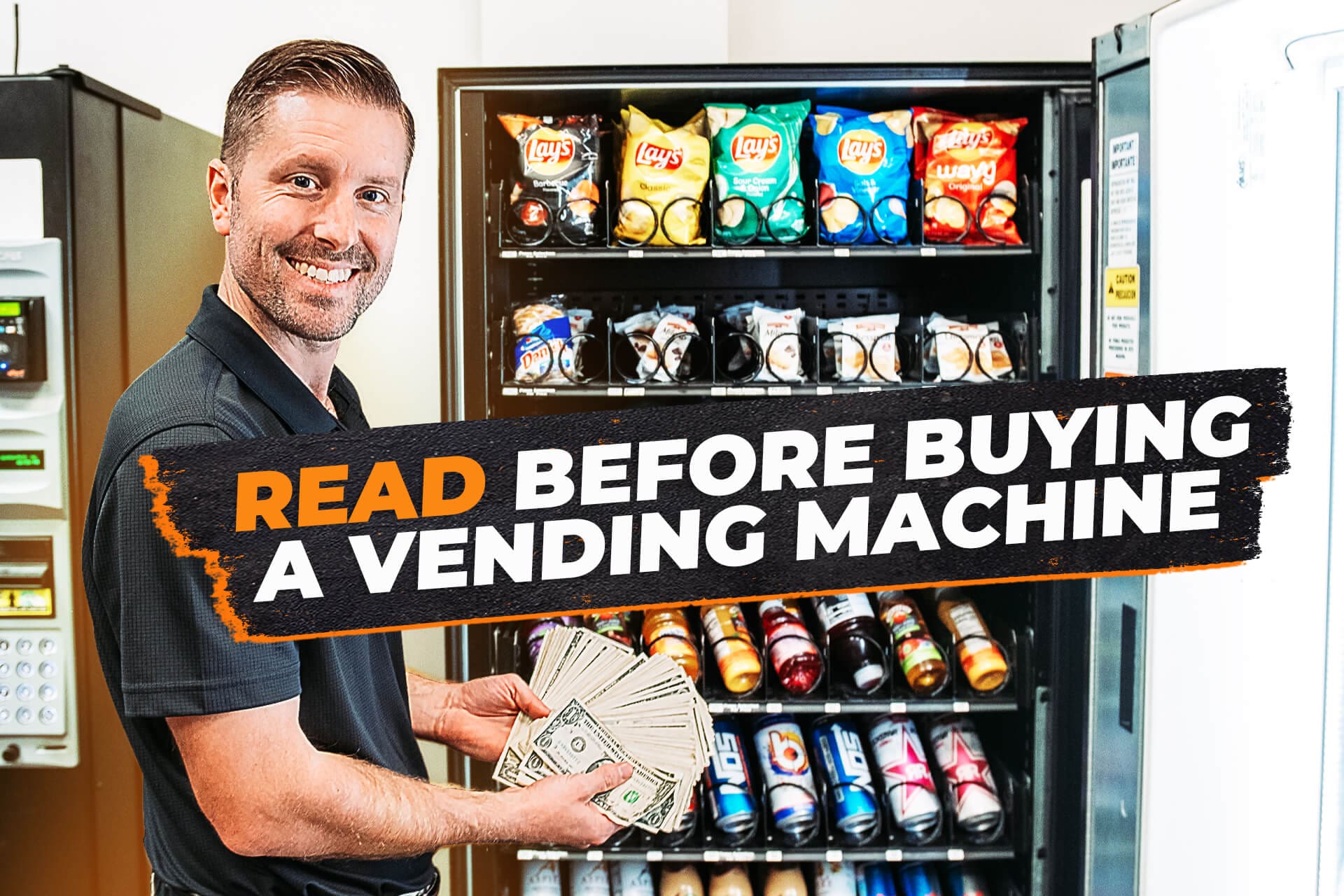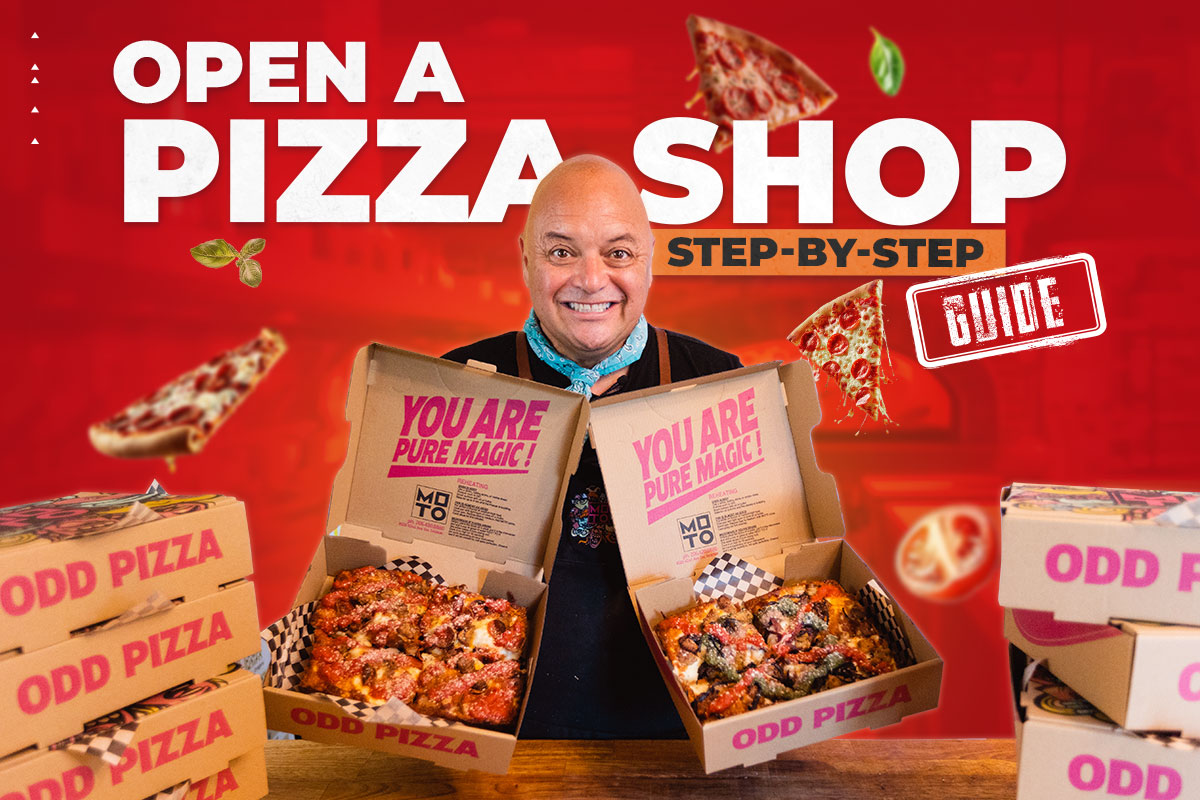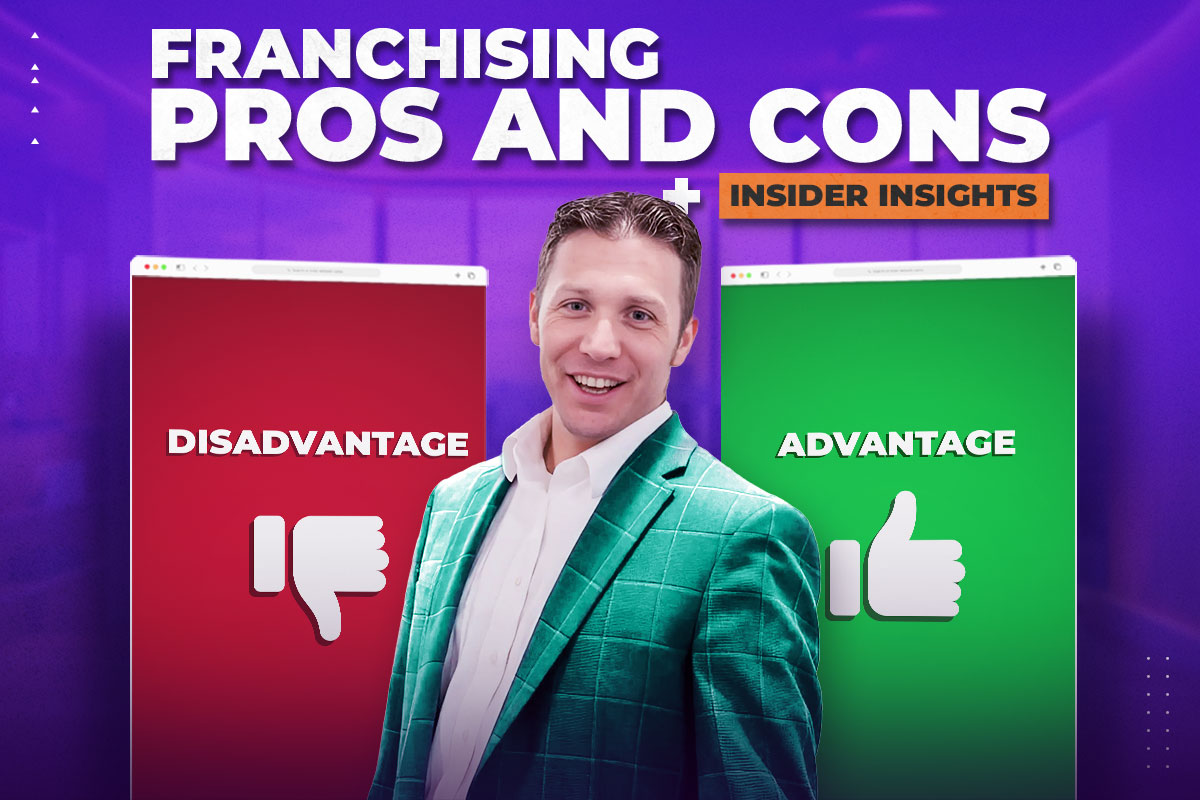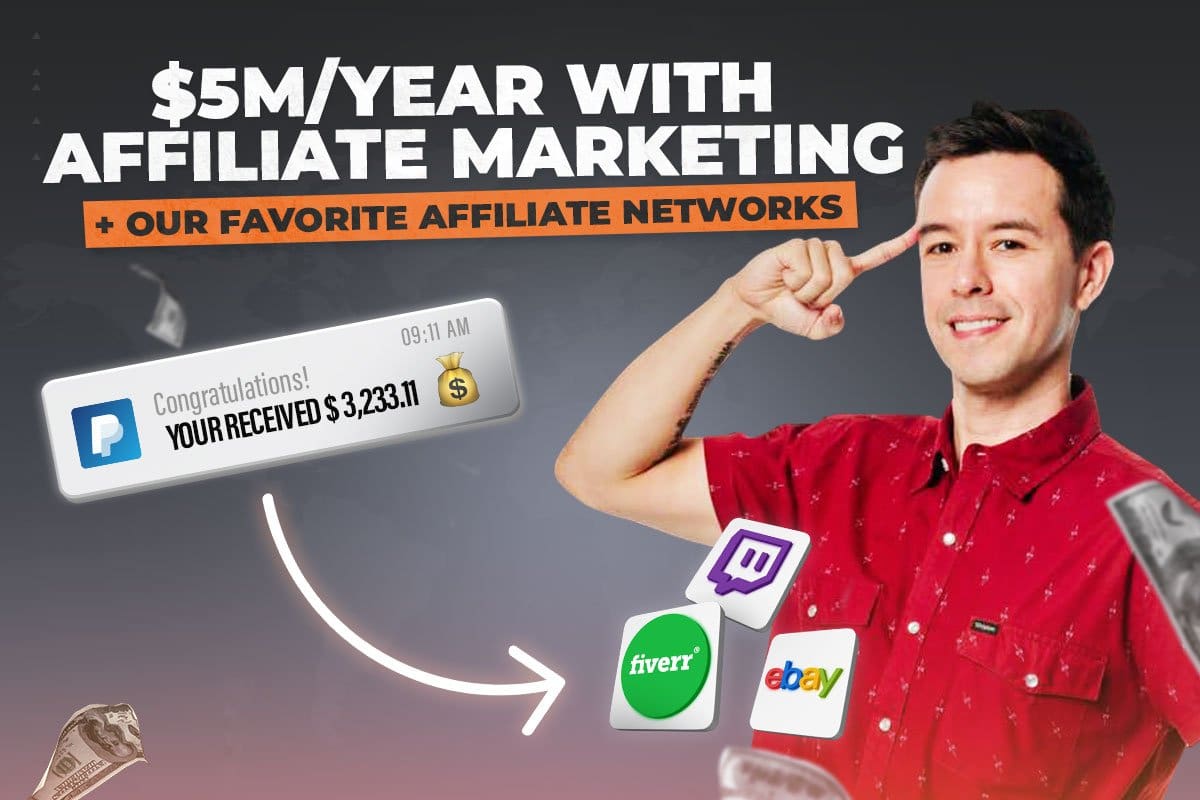Finding the best values on vending machines can make or break a vending machine business. So, what should you know before you start looking for vending machines for sale?
We’ve got you covered! Adam Hill started Hill Vending by buying a $120K vending machine business in 2014, but lost the largest location before growing the business to nearly $600K annual sales. He shared advice with us about buying vending machines, and we’re excited to share it with you.
Here’s what this article will cover (Click any of the links below to jump to each section):
What You Should Know Before Buying Vending Machines
Adam explained there are four keys to a vending machine business:
- Location
- Machines
- Service
- Pricing
He went on to explain:
Check out the rest of our interview below:
5 Choices to Make Before Buying Vending Machines
In addition, Adam discussed topics like:
- The importance of sticking with a single vendor
- Whether to buy new, refurbished, or used vending machines
- Key features you need
- Buying routes vs machines
- Types of machines
We’ll discuss each of these and how they impact buying vending machines.
#1. Choose a Vendor
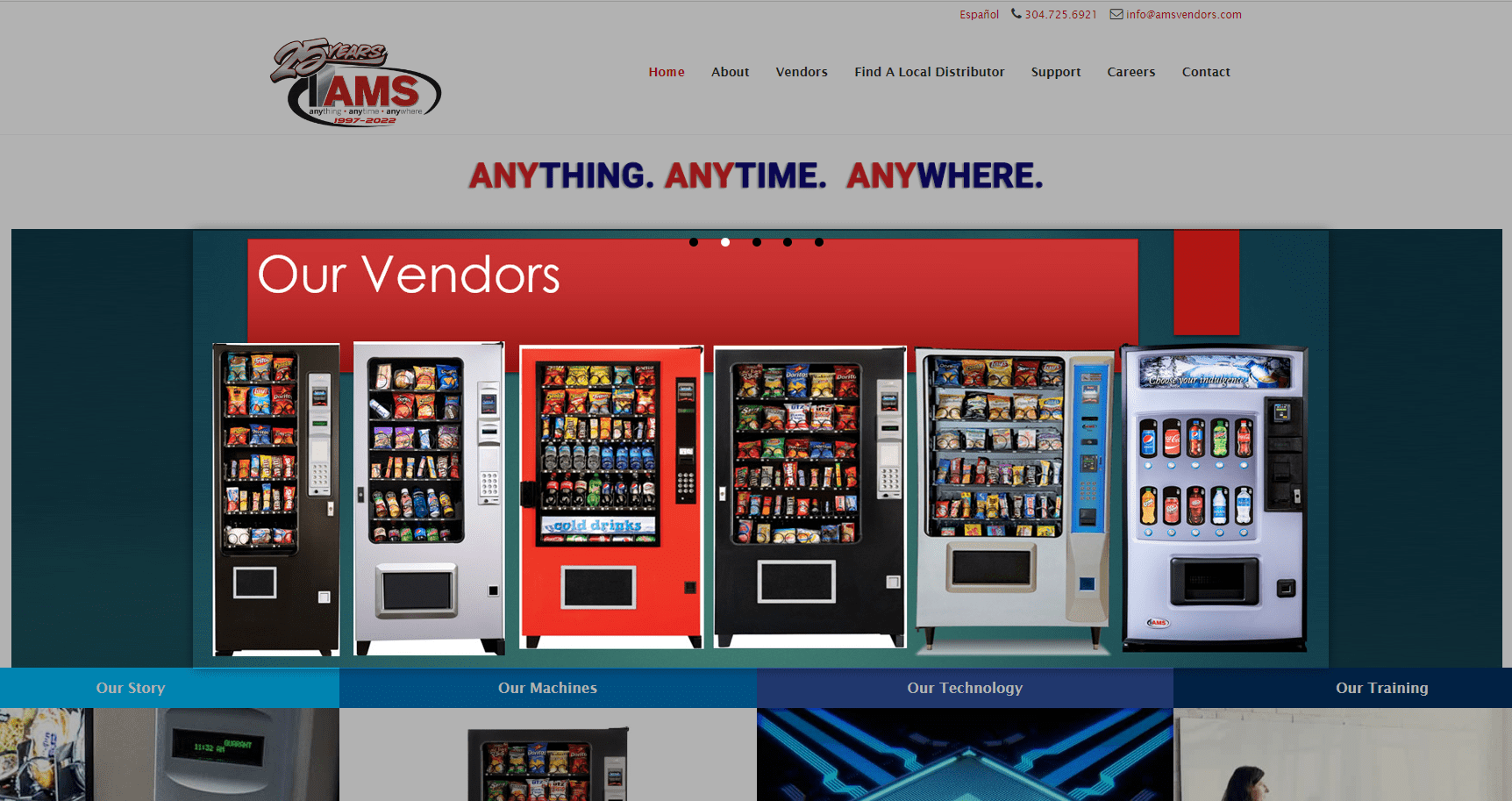
Adam explained that you should stick with one to two vendors. He went on to explain why:
This is critical because there are hundreds of parts in your typical snack or soda vending machines. Some commonly replaced vending machine parts are bill changers, coin validators, and refrigeration racks.
He also shared his favorite brands with us:
When possible, we’ll use links to these brands because we want your vending business to be prepared for success.
#2. New vs Used vs Refurbished Vending Machines
The vending industry offers three main ways to buy equipment:
- New Vending Machines For Sale: A new vending machine seller will normally be the most expensive, but it will come with the longest warranty and require less repairs when you start your vending machine business.
- Refurbished Vending Machines For Sale: If you want to save some money, a refurbished machine offers benefits of new and used machines. You get a warranty, the machine has been inspected, and has a shorter warranty than new machines, but it costs more than used vending machines for sale.
- Used Vending Machines For Sale: Purchasing a used machine has the least upfront cost, but you’ll likely have more maintenance costs.
Adam suggests going to an AMS or Vendo distributor early in the journey. He also told us:
Next, let’s look at the key features of a vending machine and what you should consider when you look for a vending machine for sale.
#3. Key Features
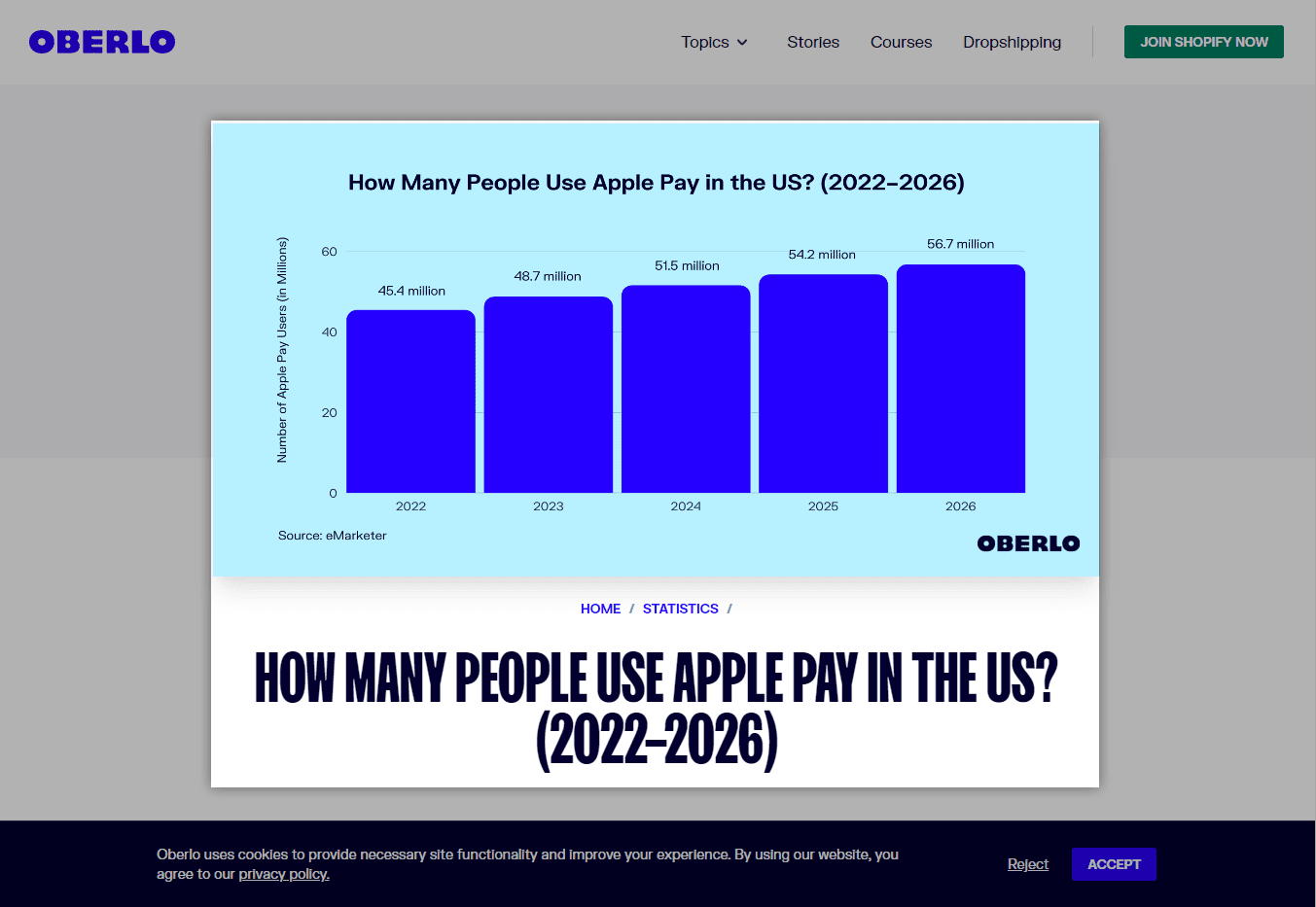
Adam explained other key features that you should look for when buying vending machines. If they don’t have these features, you’ll have to upgrade the machines or risk losing money.
- Credit Card Reader: Your vending machine business needs to be able to accept credit cards.
- Apple Pay or Tap Pay: According to Oberlo, approximately one out of every six people use Apple Pay or similar tap pay functionality on a monthly basis.
- I-Vend: You’ll want to make sure vending machines for sale include a vending machine drop sensor like I-Vend, which guarantees the product comes out or prompts the customers to make another selection.
Adam explained:
He also warned:
#4. Buying Routes vs Machines
Adam explained that it is easier to find an existing vending business for sale than purchase a vending machine and find somewhere to place it, but that it is not without hazards. This was his experience shortly after he went to purchase a vending machine route:
Despite that challenge, he believes that starting with a route is more beneficial because you can eliminate figuring out locations and focus on getting the machines, pricing, and service right.
In the class we’re creating, Adam will discuss how to purchase a vending machine route. Sign up for early access to our course with tons of great vending information.
#5. Types of Vending Machines
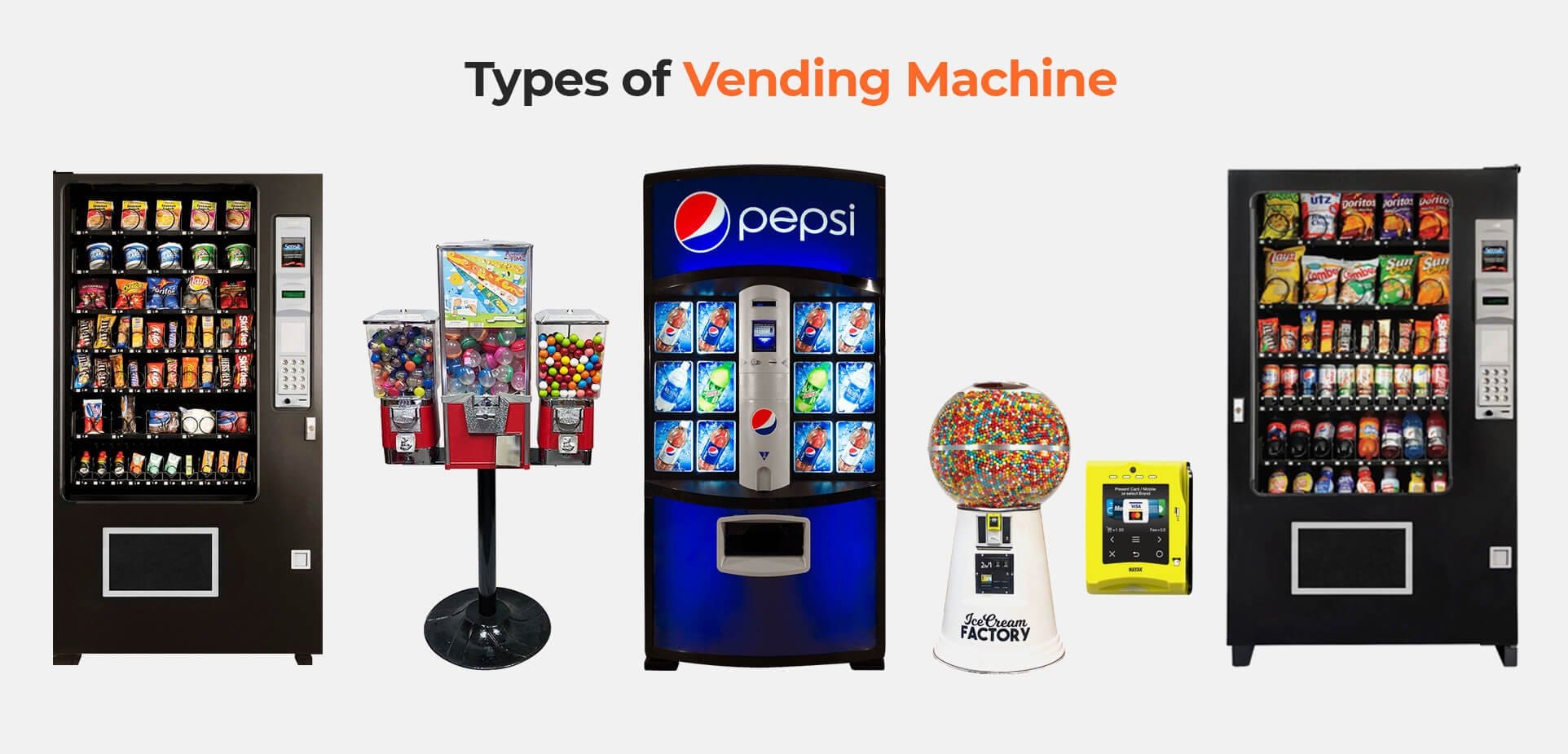
Another major consideration for the selection of vending machines is what you’ll stock in the vending machines you operate. Companies have a large selection of products to offer while operating a vending machine business. Adam told us:
We’ve created a list of common types of vending machines for sale to help you get started selling.
Snack Vending Machines For Sale
One of the most common vending machines business owners want is one that sells snacks like:
- Candy
- Chips
- Pretzels
- Cookies
- Pastries
- Other food
You can find AMS Vending Machines including the Classic Snack or the 4-Wide Classic. Alternatively, consider Vendo options like G-Snack Vendors
You might also search “snack shop for sale” to find a snack machine for sale.
Soda Vending Machine For Sale
Soda vending machines are also popular vending machines you might want to buy. Whether you’re looking for soda vending machines for home or business use, both Automated Merchandising Systems and Vendo have a soda machine for sale. Check out the options below:
- Steeley: This drink machine holds up to 300 PET bottles or 680 cans with up to 10 different selections.
- Coke Machine For Sale: Sell up to 800 cans or 360 bottles in a Coke branded vending machine. The Coke brand will limit your drinks to Coca-Cola products.
- Low Temp Beverage Machine: This pop machine holds up to 240 PET bottles and you can offer up to 40 different beverage options. Provide the largest selection of drinks your customers can imagine.
Next, let’s look at combo vending machines.
Combo Vending Machine For Sale
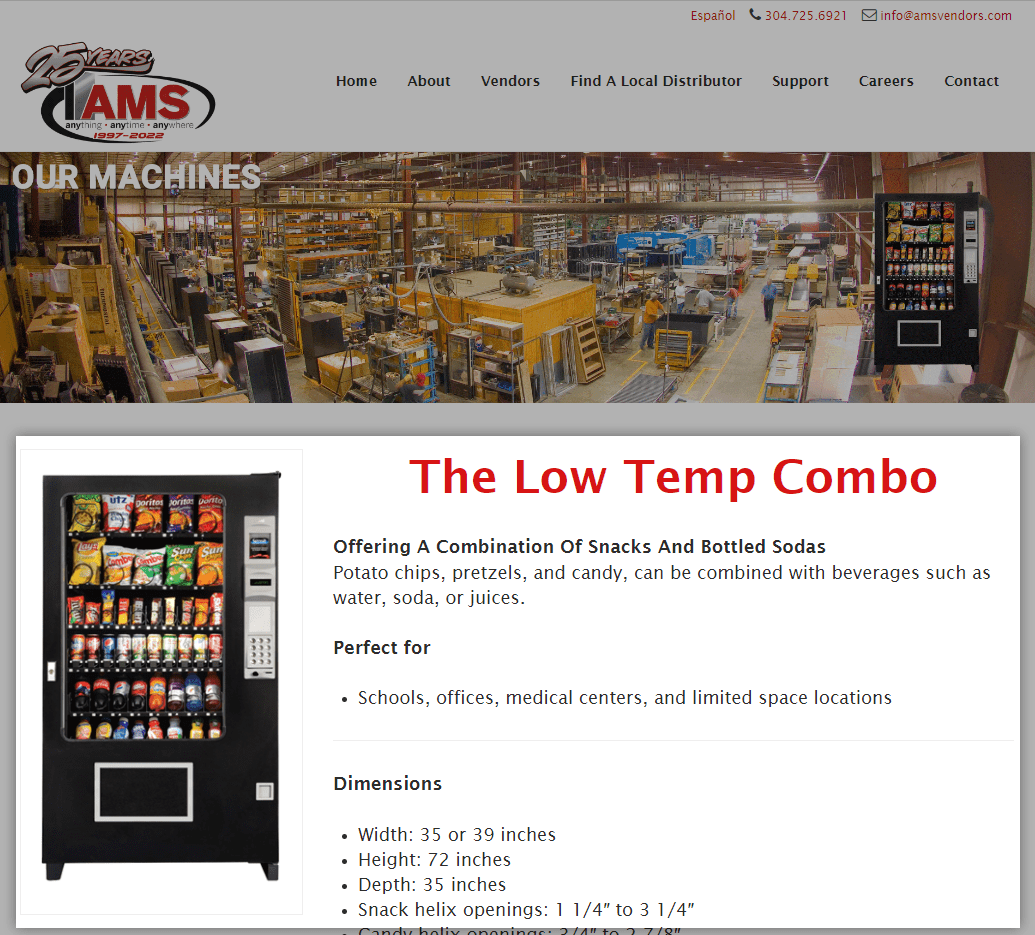
Want to offer a full line of snacks and drinks? Consider combo machines like the AMS Cold Temp Combo. You’ll be able to hold three rows of snacks and 96 20-ounce bottles making a combo machine a one-stop-shop. The G-Snack vendors from Vendo are machines vending snacks and beverages.
Candy Machine For Sale
A candy vending machine is another popular machine. There are three ways to sell candy out of vending machines:
- Use a snack machine for larger candy.
- Get bulk vending machines.
- Find gumball machines for sale.
Vendo and AMS vending machines focus mostly on drink and snack vending machines, so we’ll have to look at other providers if you are selling candy.
Bulk Vending Machines For Sale
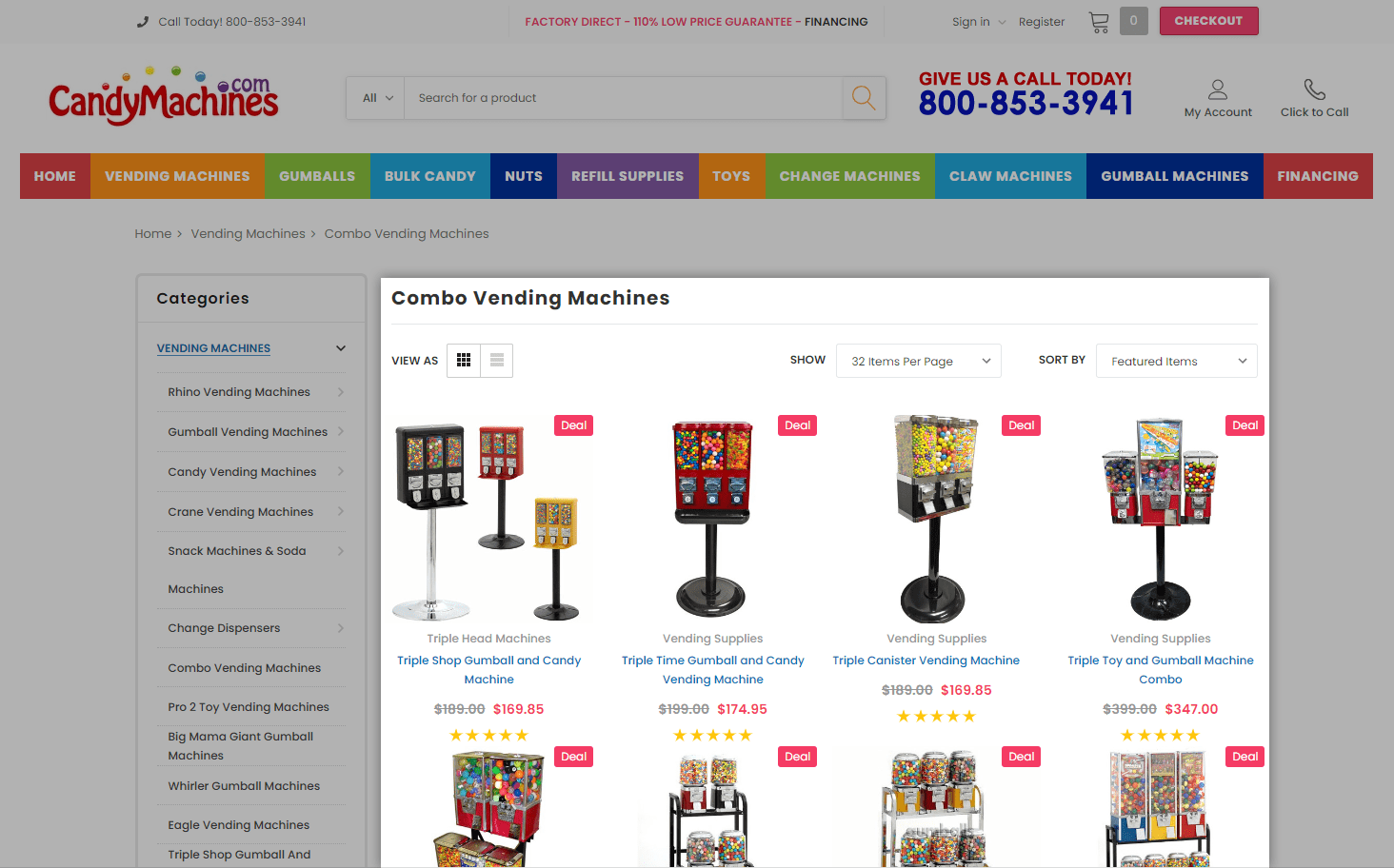
These machines are great for selling handfuls of candy like M&Ms, a snack like nuts, or even small toys and stickers. You can buy Selectivend bulk machines from Sams Club for $240 each or a variety of machines ranging from $170 to $2,400 from CandyMachines.com.
Gumball Machines For Sale
Gumball machines are a favorite for kids because they get to watch the gumballs roll out into their hands. There are a ton of cheap vending machines for sale in this category, or you can go for fancier ones that are more fun like this 79” gumball machine! That’s right—it’s over six feet tall! Don’t forget a ladder!
Don’t forget to check out other types of vending machines.
How Much Is a Vending Machine?
The vending machine price will vary depending on the type, condition, and features of the machines. As a general rule, you can find the following price ranges:
- New Vending Machines: $2,000+ for larger machines, $50+ for small vending machines like gumball and bulk vending.
- Refurbished Vending Machines: 20% to 70% off the price to purchase vending machine options, depending on who does the refurbishing and the length of the warranty.
- Used Vending Machines: While it used to be easier to find vending machines for sale under $500, the recent inflationary environment has made it a challenge to find vending machine prices that low. The lowest I found in my area was about $750, but each location is different.
Where to Buy a Vending Machine
Some of the best places to buy vending machines include
- AMS Vendors
- Vendo Distributors
- Sams Club
- CandyMachines.com
Other Vending Blogs
Check out our other blogs about vending machines including:
- Check out our other blogs about vending machines including:
Then sign up for our Vending Machine Bootcamp.
What Vending Machine Brand Do You Prefer?
We hope this information helps you prepare to find vending machines for sale. Everyone has their own personal preferences when it comes to equipment.
We love reader input. Would you mind taking a moment to answer the question below? Please don’t include links because they get flagged as spam. Thank you!
What brands of vending machines have you found to be reliable and easy to maintain?

